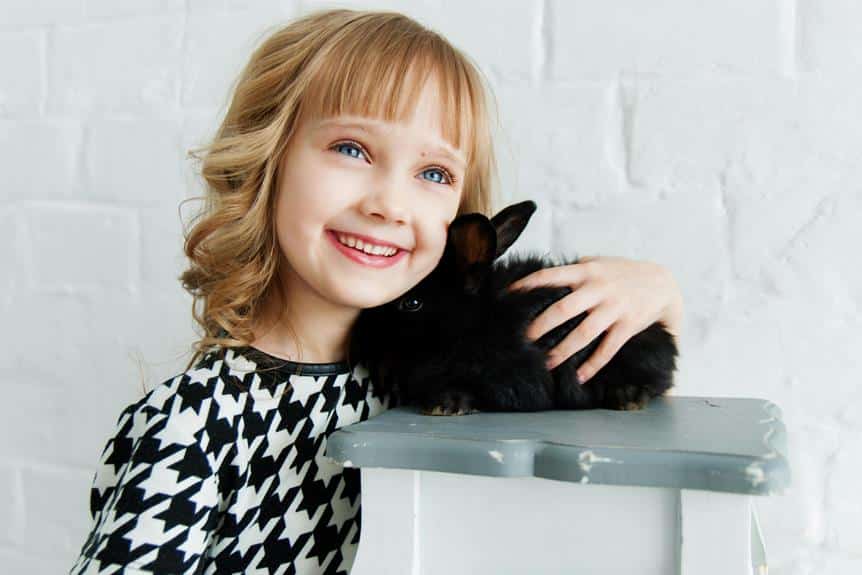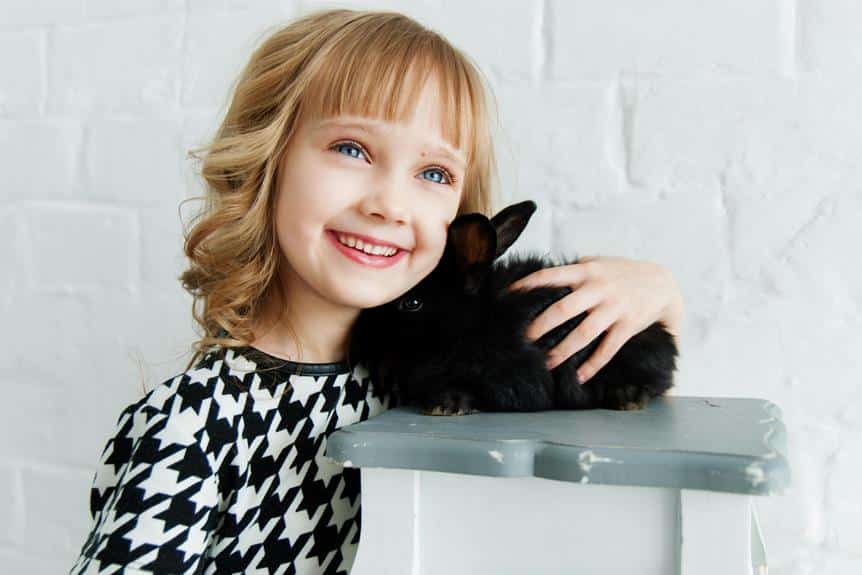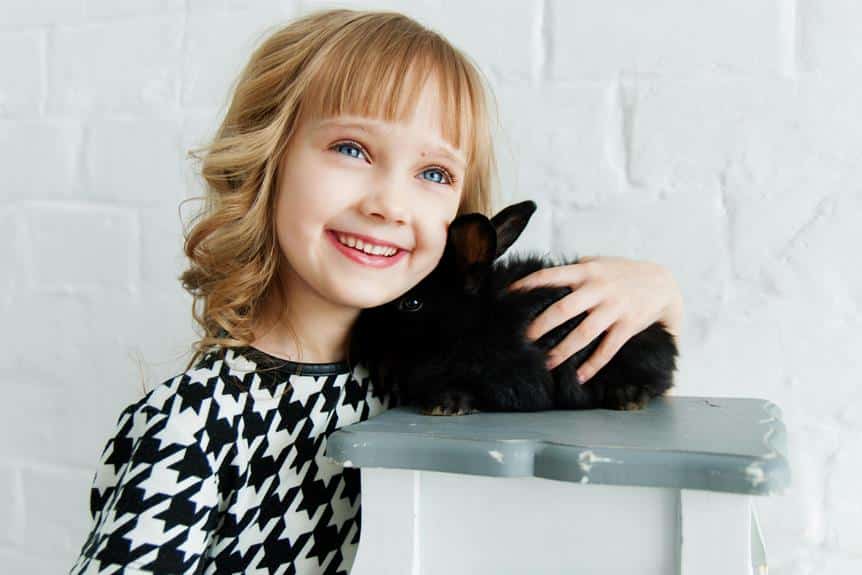Table of Contents
If your pet rabbit has been as elusive as a shadow lately, there could be a deeper reason behind their disappearing act. Understanding why your furry friend might be seeking solitude is crucial for their well-being.
From stress and fear to environmental changes, there are several factors that could be causing your rabbit to retreat into seclusion. Unraveling these mysteries could help you provide the comfort and care your beloved pet needs.
Key Takeaways
- Environmental triggers like loud noises or unfamiliar scents can lead to hiding behavior.
- Health concerns such as illness or dental issues may cause rabbits to seek seclusion.
- Providing a secure and calm environment is crucial to alleviate stress and fear.
- Social interaction and consistent bonding activities help build trust and reduce hiding behavior.
Stress or Fear
Have you ever wondered why your pet rabbit might be hiding? Stress or fear could be the underlying reasons. Rabbits are sensitive animals, and various anxiety triggers can lead them to seek hiding spots. Behavioral cues such as trembling, decreased appetite, excessive grooming, or thumping their hind legs may indicate that your rabbit is feeling stressed or fearful.
Common anxiety triggers for rabbits include loud noises, sudden movements, unfamiliar surroundings, or the presence of predators. These situations can cause your rabbit to feel unsafe, prompting them to hide as a coping mechanism. It's essential to create a calm and secure environment for your rabbit to help alleviate their stress and fear.
If you notice your rabbit frequently hiding, try to identify and address the underlying causes of their anxiety. Providing them with a quiet and cozy hiding place within their enclosure can offer them a sense of security. Spending quality time with your rabbit, engaging in gentle interactions, and maintaining a consistent routine can also help reduce their stress levels. By understanding your rabbit's behavior and responding to their needs, you can create a harmonious and reassuring environment for your furry friend.
Illness or Pain
If your pet rabbit is hiding, it could be a sign of underlying illness or pain. It's essential to pay close attention to any changes in your rabbit's behavior as they may be indicators of health issues. Here are some key points to consider:
- Veterinary check-up: Schedule a visit to the veterinarian to rule out any potential illnesses or injuries causing your rabbit to hide. A professional can conduct a thorough examination to determine the root cause of your rabbit's discomfort.
- Observe for symptoms: Keep an eye out for symptoms such as decreased appetite, lethargy, abnormal stool, or changes in grooming habits. These signs could point towards an underlying health issue that needs to be addressed promptly.
- Monitor dietary changes: Ensure your rabbit is eating a balanced diet suitable for their age and health requirements. Sudden changes in appetite or refusal to eat can be a sign of digestive problems or dental issues.
- Provide a comfortable environment: Create a safe and quiet space for your rabbit to rest and recover. A calm environment can help reduce stress and aid in their healing process.
Lack of Security
To help understand why your pet rabbit might be hiding, consider the importance of providing a secure environment for them. Rabbits, by nature, seek comfort and safety in their surroundings. If your rabbit is displaying signs of fear or anxiety, it could be due to a lack of security in their living space.
One key aspect to consider is the rabbit's comfort zone. Rabbits have specific needs when it comes to feeling secure. Providing them with a quiet, undisturbed area where they can retreat to when they feel overwhelmed is essential for their well-being.
Trust issues can also play a significant role in your rabbit's behavior. If they've experienced any form of distress or mistreatment, they may be more prone to hiding as a defense mechanism. Building a strong bond based on trust and positive interactions can help alleviate these trust issues over time.
Environmental Changes
During times of significant environmental changes, your pet rabbit may exhibit behavior that includes increased hiding tendencies. This can be distressing for pet owners, but understanding the reasons behind this behavior is crucial in providing the necessary support for your furry friend. Here are some factors related to environmental changes that may be causing your rabbit to hide:
- Temperature fluctuations: Rabbits are sensitive to extreme temperatures. Sudden changes in temperature, whether it's too hot or too cold, can make your rabbit seek shelter to regulate its body temperature.
- Noise disturbances: Rabbits have keen hearing, and loud or sudden noises can startle them. If there are construction works, loud music, or even thunderstorms nearby, your rabbit may retreat to a hiding spot to feel safe.
- Changes in lighting: Bright lights or sudden changes in lighting conditions can be overwhelming for rabbits. They may prefer dimly lit areas to feel more secure.
- Unfamiliar scents: Introducing new scents or moving your rabbit to a different environment can trigger their instinct to hide until they feel comfortable with the new smells around them.
Understanding how these environmental changes affect your pet rabbit can help you create a safe and comfortable space for them to feel secure.
Social Interaction
Understanding how social interaction impacts your pet rabbit's behavior is essential for fostering a healthy and happy relationship with your furry companion. Rabbits are social animals that thrive on companionship, so it's crucial to engage in bonding activities regularly. Establishing a consistent playtime schedule can help build trust and strengthen the bond between you and your rabbit.
Bonding activities, such as gentle petting, talking softly, and offering treats, can help your rabbit feel more secure and loved. These interactions provide mental stimulation and emotional support, reducing the likelihood of your rabbit hiding due to loneliness or stress. Additionally, spending time with your rabbit during play sessions can improve their overall well-being and prevent them from becoming withdrawn or fearful.




